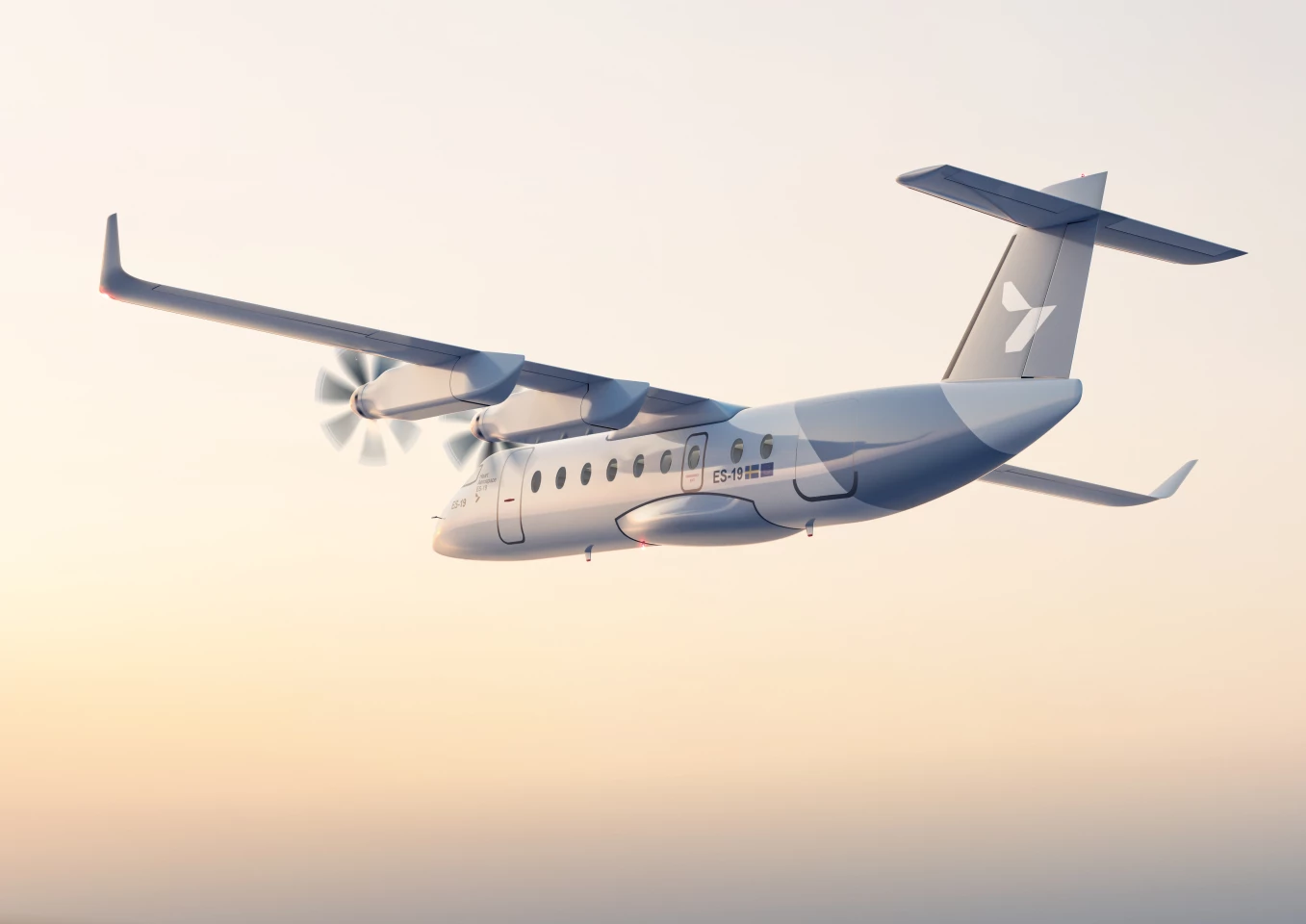With a view to servicing regional routes, Swedish startup Heart Aerospace is developing an all-electric aircraft designed for short trips that simply aren't economically feasible for conventional planes. The company has just attracted a new round of investors to help get its turboprop plane off the ground, among which is United Airlines who plans to incorporate 100 of the aircraft into its fleet a few years down the track.
Electric aircraft are a long way from completing the type of long-haul, international flights today's commercial airliners are capable of, with current battery technology limiting the kinds of distances these planes can travel. Where they could offer unique value, however, is in servicing shorter routes that their onboard energy densities do allow for, with a number of emerging electric planes being developed for exactly that purpose.
Heart Aerospace's ES-19 joins them as a 19-passenger all-electric aircraft, which the company says will have a maximum range of 400 km (250 miles) in its first iteration, though that figure will increase in line with future advances in battery technology. The company says its electric motor is around 20 times less expensive than the engine in a conventional turboprop of the same size, and maintenance costs are more than 100 times lower.

It hopes that these low running costs will enable the ES-19 to go to work servicing routes that are no longer viable for gas-turbine-powered aircraft, or perhaps even open up entirely new ones. Designed to take off from runways as short as 750 m (2,500 ft), the company imagines the electric plane transporting passengers on short flights over mountainous terrain where travel by road would be impractical, or perhaps hopping between islands.
The ES-19 is still a couple of years away from its first flight, but the company's progress so far has attracted the interest of some big names in the aviation space. Announced just last week was the closing of a Series A funding round, with investments from Breakthrough Energy Ventures, Mesa Airlines and United Airlines – the latter two each committing to buy 100 of the planes for commercial use.
This isn't the only interesting move by United Airlines regarding the future of aviation. It's also testing out biofuels on regularly scheduled flights, made billion-dollar investments in flying taxis from eVTOL startup Archer, and committed to buy as many as 50 supersonic aircraft from Boom. Ultimately, the company aspires to reduce its greenhouse gas emissions by 100 percent by the year 2050, without using traditional carbon offsets.

"We expect the short-haul regional air travel market to play a key role in the evolution of the electric aircraft," says Michael Leskinen, United's Vice President Corporate Development & Investor Relations. "As battery technology improves, larger-gauge aircraft should become viable but we're not going to wait to begin the journey. That's why we're looking forward to beginning our work with Heart, so that, together, we can scale the availability of electric airliners and use them for passenger flights within the next five years."
Heart Aerospace expects to finalize the design for its ES-19 plane by 2023 and conduct its first flight in the first quarter of 2024. It hopes certification will come in 2026, allowing the craft to enter service in the final quarter of that year.
Sources: Heart Aerospace, United Airlines







